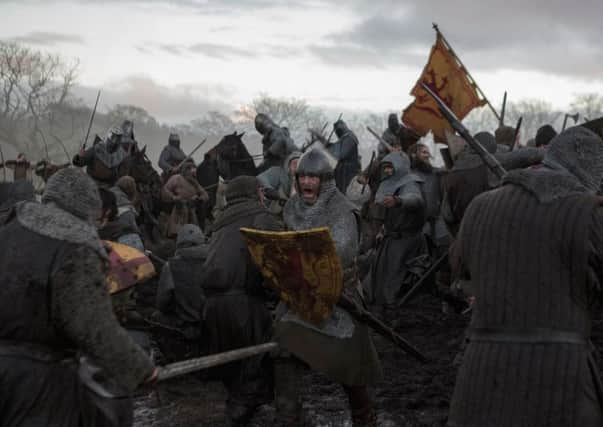Lack of diversity and gender pay gap ‘holding back Scottish screen sectors’


New research has warned that the country faces being unable to meet growing demand for skilled workers following the success of hits like Outlander and Outlaw King.
Shortages of hundreds of permanent and freelance staff are revealed in the study, amid warnings of “well known and persistent challenges relating to diversity and inclusion”.
Advertisement
Hide AdAdvertisement
Hide AdJointly funded by Screen Scotland and Skills Development Scotland, it was instigated to identify some of the main challenges hampering the growth of the industries.It has found that women were under-represented in a number of key areas, despite making up more than half of the total permanently employed workforce.
The Scotland’s Screen Skills report said: “The research reveals that women in the workforce face challenges around entry into the sector, in-work progression, and inequality of pay.
“As well as being less well-represented in the freelance base than the permanently employed workforce, they are also under-represented in camera, sound, lighting, and editing roles. Working conditions can also create challenges for those with family and caring responsibilities.
“People from ethnic minority backgrounds are under-represented in the workforce, particularly so in the freelance base. The student base in screen-related subjects is largely white, indicative of the need to attract people from a more diverse background into screen-related subjects .
“The use of unpaid internships continues to be widespread across the sector. This practice is likely to favour those who can afford to undertake unpaid work, limiting diversity and social mobility.”
Spending on film and TV productions in Scotland is worth around £96 million to the economy – more than double what it was in 2014.
The report adds: “The recent period of growth, whilst positive and welcome, may put pressure on the workforce as production companies look to source more crew members, often from the freelance base.
“Employers reported difficulties recruiting staff, more so in the freelance crew. Few expected recruitment to get easier, with many expecting the industry will continue to grow and outpace the growth of the talent and labour pool.”